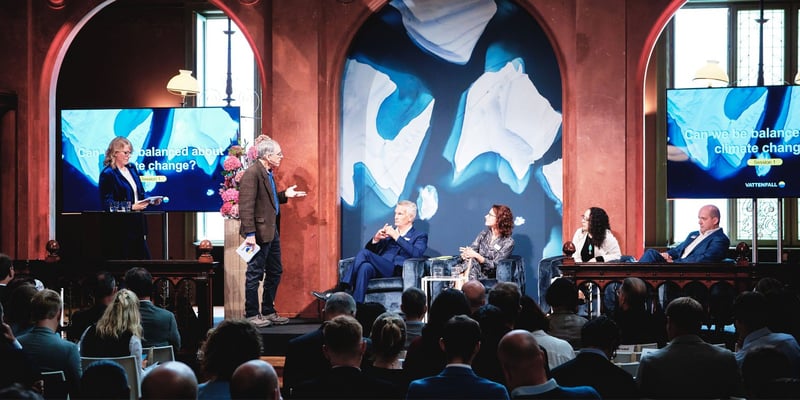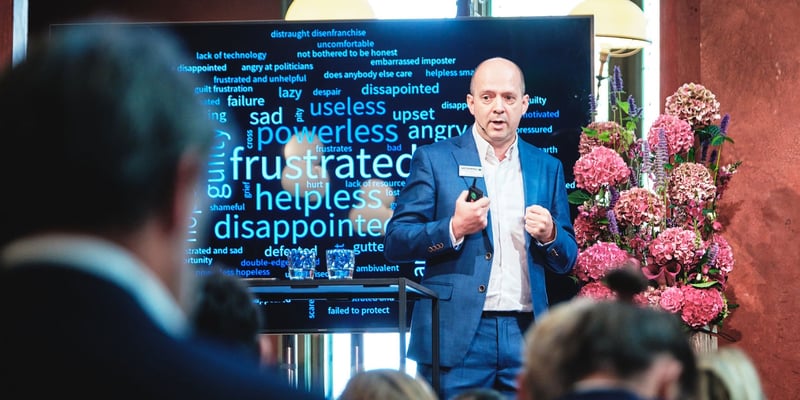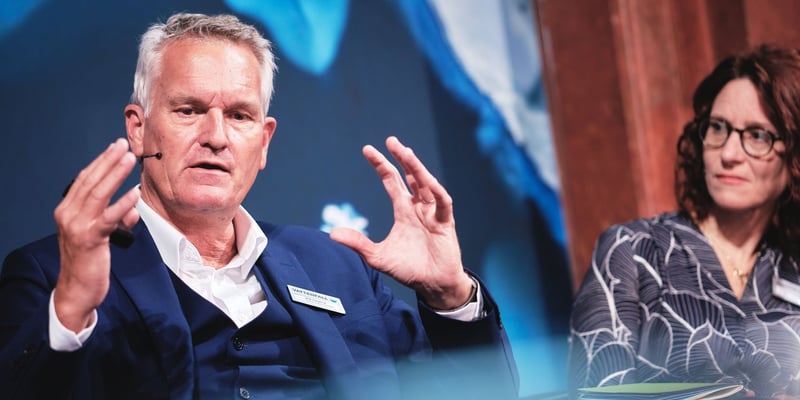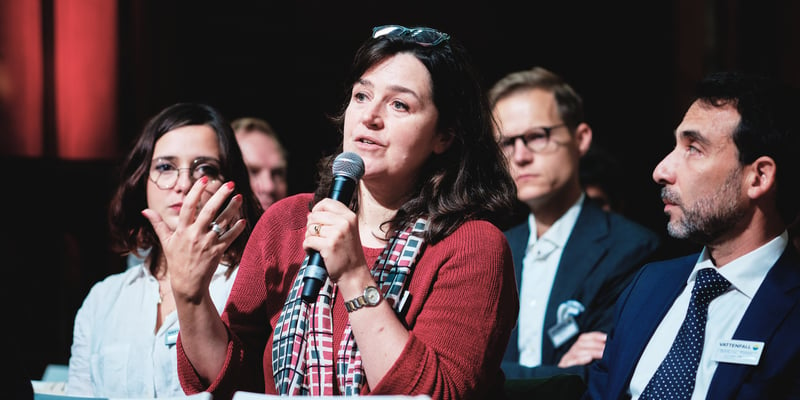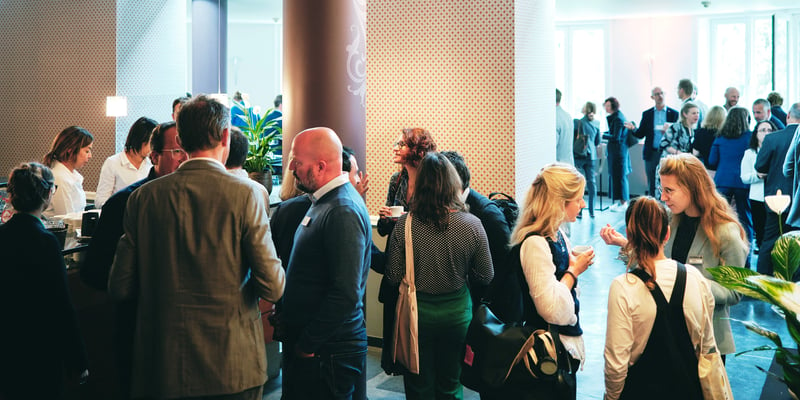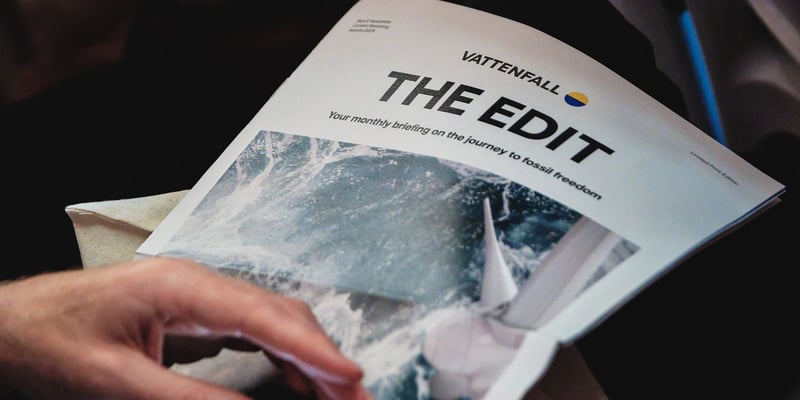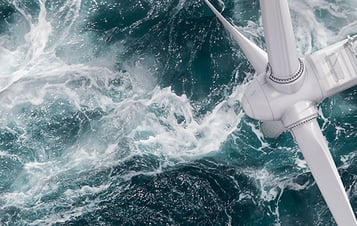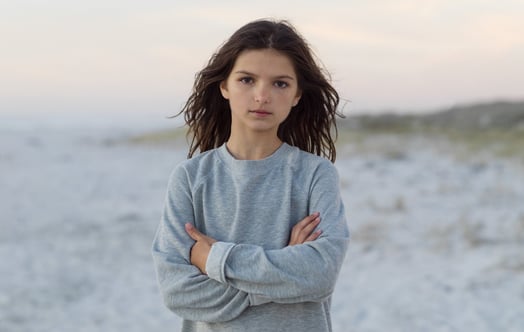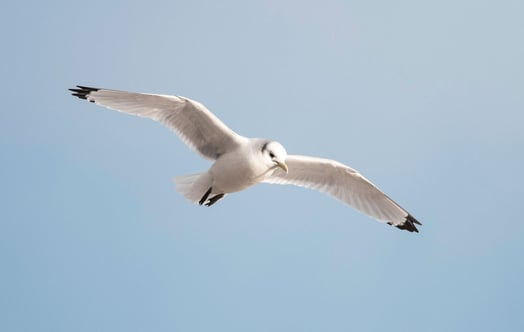Can climate communication overcome the bad news problem?
Our interactive hybrid event was held on 24 September 2024 in Brussels’ historical Bibliothèque Solvay.
Climate change is real, and is widely perceived as the most serious threat to the world’s future. Climate change needs to be reported, made visible and discussed to drive and inspire us to take action. But how can we talk about such an alarming subject, that seems to be growing steadily worse, without the “bad news syndrome” – people walking away because the news is simply too depressing – kicking in? Can we address the severity of the crisis while remaining hopeful about the future? Can we increase the public’s interest and appetite for climate news, while overcoming misinformation?
We brought together media, scientists, NGOs, and representatives from politics and business to share and discuss their insights into these issues..
Watch the sessions again here:
Session 1 – Can we be balanced about climate change?
Session 2 – Can we grow the publics for climate change news?
Session 3 – Whose facts matter in the climate change story?
Programme:
09.30–09.45: Introduction by Åsa Jamal, Vattenfall
09.45–11.15: Session 1 – Can we be balanced about climate change?
Various research findings confirm that how we discuss climate change matters. The words we choose in reporting the issues and in climate change policies themselves can make a significant difference. Meanwhile, navigating between neutrality and activism is becoming difficult for mainstream media. Will climate change alter the industry’s operating assumptions?
Speakers: Ulrik Haagerup, Kris De Meyer, Emilia Díaz-Struck, Angelika Pullen and Tom Brookes.
11.45–13.15: Session 2 – Can we grow the publics for climate change news?
Over the past years, traditional media have been hit hard. Overall trust and viewership for news is continuing its downward trend. Up to 40 percent of the audiences that have left tend to avoid news, because they find it too depressing. Who and where are the audiences for climate change news?
Speakers: Alexandra Borchardt, Ivan Couronne, Shereen Daver, Dr. Lagipoiva Cherelle Jackson and Lars Tallert.
14.15–15.45: Session 3 – Whose facts matter in the climate change story?
‘Facts’ are now more disputed than ever. Whose facts are legitimate, and to whom has become a matter of faith. In practical terms: what constitutes "proof" for the publics of climate change communication?
Speakers: Sven Egenter, Syed Nazakat, Mitali Mukherjee and Alastair Bealby.
15.45–16.15: Collective session & wrap-up
Speakers:
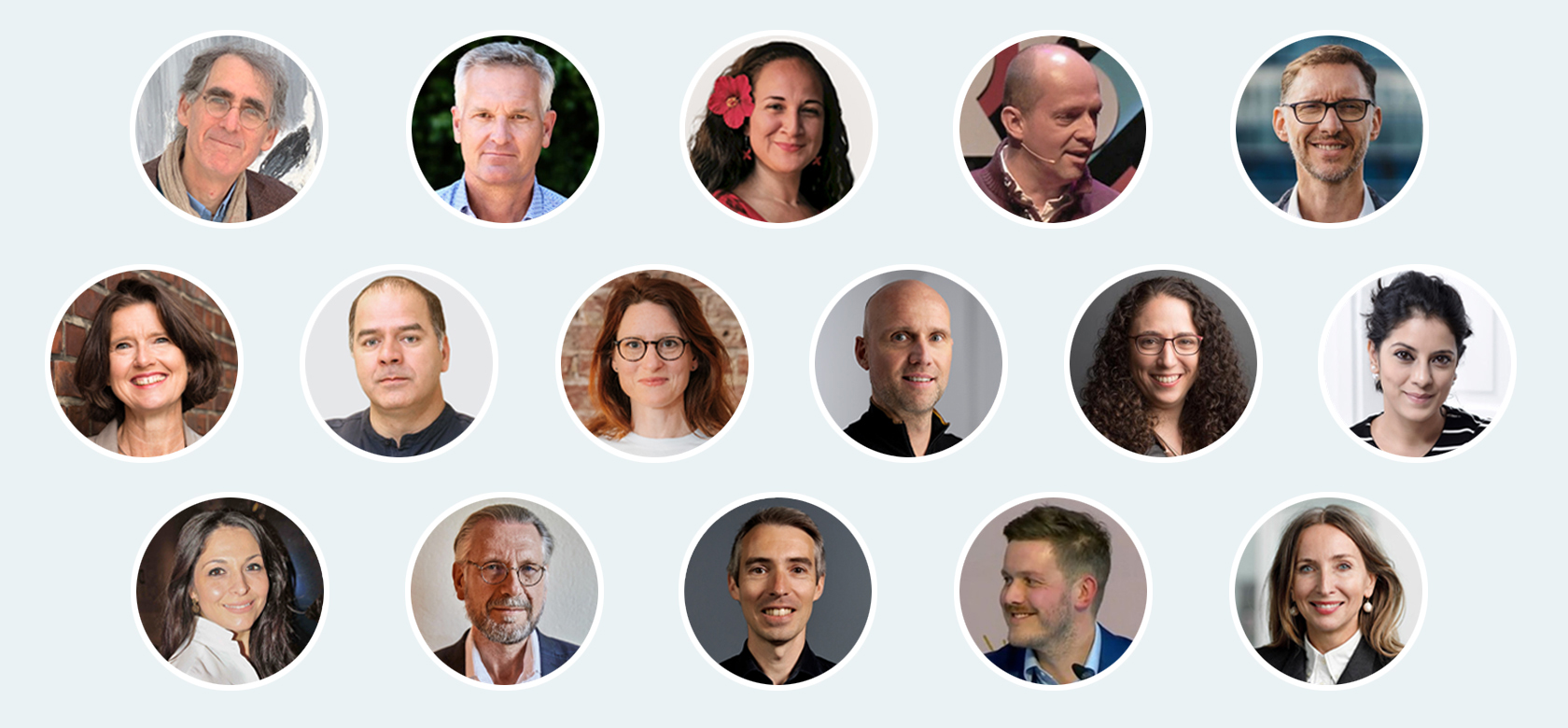
Dr. Mark Lee Hunter – moderator
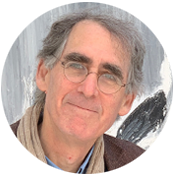 Founding member of The Global Investigative Journalism Network, the principal author of Story-Based Inquiry: A Manual for Investigative Journalists (UNESCO 2009) and the recipient of many awards for his reporting. He is the founding academic director of the Future Media Management Programme at Stockholm School of Economics Riga. He has lectured in 40 countries on five continents and pioneered collaborative investigations with NGOs, notably Greenpeace. Mark will moderate the event.
Founding member of The Global Investigative Journalism Network, the principal author of Story-Based Inquiry: A Manual for Investigative Journalists (UNESCO 2009) and the recipient of many awards for his reporting. He is the founding academic director of the Future Media Management Programme at Stockholm School of Economics Riga. He has lectured in 40 countries on five continents and pioneered collaborative investigations with NGOs, notably Greenpeace. Mark will moderate the event.
Ulrik Haagerup – Constructive Institute
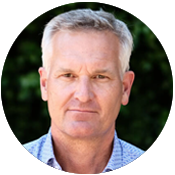 Founder and CEO of Constructive Institute, which embraces solutions, nuance and dialogue with the intent to reinstall trust in the idea that shared facts, shared knowledge and shared discussions are the pillars on which our communities balance. Ulrik is an international public speaker on leadership, media, democracy, innovation and strategy. For 10 years he was the Executive Director of News at Denmark's public service broadcaster DR. He was previously Editor-in-Chief at Nordjyske Media and before that national daily Jyllands-Posten, after working as an investigative reporter.
Founder and CEO of Constructive Institute, which embraces solutions, nuance and dialogue with the intent to reinstall trust in the idea that shared facts, shared knowledge and shared discussions are the pillars on which our communities balance. Ulrik is an international public speaker on leadership, media, democracy, innovation and strategy. For 10 years he was the Executive Director of News at Denmark's public service broadcaster DR. He was previously Editor-in-Chief at Nordjyske Media and before that national daily Jyllands-Posten, after working as an investigative reporter.
Dr. Lagipoiva Cherelle Jackson – Solutions Journalism Network
 Award-winning Pacific island journalist and scholar. For over 20 years she has reported from the frontlines of the climate crisis in her home islands of Samoa. Her work has been featured in The Guardian, AFP, AP, Al Jazeera, Washington Post and others. She is the host of 'An Impossible Choice' a podcast series by The Guardian on the existential nature of the climate crisis for Pacific island countries. A Chieftess from the island of Savai'i, she has facilitated numerous climate journalism trainings with various organisations to strengthen climate coverage globally.
Award-winning Pacific island journalist and scholar. For over 20 years she has reported from the frontlines of the climate crisis in her home islands of Samoa. Her work has been featured in The Guardian, AFP, AP, Al Jazeera, Washington Post and others. She is the host of 'An Impossible Choice' a podcast series by The Guardian on the existential nature of the climate crisis for Pacific island countries. A Chieftess from the island of Savai'i, she has facilitated numerous climate journalism trainings with various organisations to strengthen climate coverage globally.
Kris De Meyer – UCL Climate Action Unit
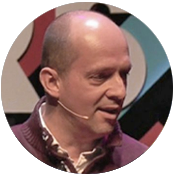 Director of the UCL Climate Action Unit (CAU) and is a Senior Research Fellow in the Department of Earth Sciences at UCL. He is a neuroscientist, science communicator and science-policy co-production expert; bringing insights from neuroscience and psychology to the domain of climate change. At the CAU, Kris is responsible for the neuroscientific underpinning of the programme of interventions provided. Kris works closely with clients providing unique expertise on how the human brain responds to climate change.
Director of the UCL Climate Action Unit (CAU) and is a Senior Research Fellow in the Department of Earth Sciences at UCL. He is a neuroscientist, science communicator and science-policy co-production expert; bringing insights from neuroscience and psychology to the domain of climate change. At the CAU, Kris is responsible for the neuroscientific underpinning of the programme of interventions provided. Kris works closely with clients providing unique expertise on how the human brain responds to climate change.
Tom Brookes – Meliore Foundation
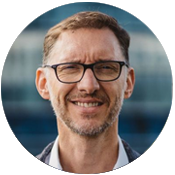 CEO of the Meliore Foundation, a leading organisation for philanthropy focused on funding fact-based strategic communications around climate and related issues. In 2012, he founded the Global Strategic Communications Council (GSCC), building on his work as Executive Director of Strategic Communications at the European Climate Foundation. The Meliore Foundation works with global philanthropic funding partners to support programmes which educate and encourage fact-based discourse at community, societal, commercial and policy-making levels. Tom previously led government relations for Apple in Europe and was a senior advisor to Microsoft and other companies in their interactions with EU competition regulation.
CEO of the Meliore Foundation, a leading organisation for philanthropy focused on funding fact-based strategic communications around climate and related issues. In 2012, he founded the Global Strategic Communications Council (GSCC), building on his work as Executive Director of Strategic Communications at the European Climate Foundation. The Meliore Foundation works with global philanthropic funding partners to support programmes which educate and encourage fact-based discourse at community, societal, commercial and policy-making levels. Tom previously led government relations for Apple in Europe and was a senior advisor to Microsoft and other companies in their interactions with EU competition regulation.
Alexandra Borchardt – European Broadcasting Union
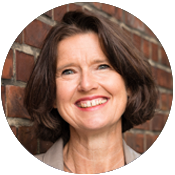 Senior journalist, media researcher, independent advisor, and university teacher. She is the lead author of the 2023 and 2024 EBU News Reports “Climate Journalism That Works: Between Knowledge and Impact” and “Trusted Journalism in the Age of Generative AI”. She works as co-director of the Climate Explorer Fellowship Program at the Constructive Institute and as a coach for the World Association of News Publishers (WAN-IFRA) in their Table Stakes Europe Programme on the digital transformation of newsrooms. As a honorary professor at TUM School of Management Alexandra teaches “Leadership and Strategy in the 21st Century”. She is also affiliated with the Reuters Institute for the Study of Journalism at the University of Oxford as a Senior Research Associate after having served as their Director of Leadership Programmes until 2019. Prior to this she was managing editor of Süddeutsche Zeitung (SZ), Germany’s leading quality daily.
Senior journalist, media researcher, independent advisor, and university teacher. She is the lead author of the 2023 and 2024 EBU News Reports “Climate Journalism That Works: Between Knowledge and Impact” and “Trusted Journalism in the Age of Generative AI”. She works as co-director of the Climate Explorer Fellowship Program at the Constructive Institute and as a coach for the World Association of News Publishers (WAN-IFRA) in their Table Stakes Europe Programme on the digital transformation of newsrooms. As a honorary professor at TUM School of Management Alexandra teaches “Leadership and Strategy in the 21st Century”. She is also affiliated with the Reuters Institute for the Study of Journalism at the University of Oxford as a Senior Research Associate after having served as their Director of Leadership Programmes until 2019. Prior to this she was managing editor of Süddeutsche Zeitung (SZ), Germany’s leading quality daily.
Syed Nazakat – DataLEADS
 Award-winning journalist, media entrepreneur, founder and CEO of DataLEADS, a tech & digital media company that promotes open data and democratisation of information at scale. Syed has spearheaded one of the world’s biggest fact-checking, data journalism, open climate change reporting initiatives and media literacy training networks which has resulted in the launch of many fact-checking initiatives, in multiple languages, and has benefited hundreds of institutions and organisations across Asia. He is a founder of Asian Dispatch and a board member of the Global Investigative Journalism Network.
Award-winning journalist, media entrepreneur, founder and CEO of DataLEADS, a tech & digital media company that promotes open data and democratisation of information at scale. Syed has spearheaded one of the world’s biggest fact-checking, data journalism, open climate change reporting initiatives and media literacy training networks which has resulted in the launch of many fact-checking initiatives, in multiple languages, and has benefited hundreds of institutions and organisations across Asia. He is a founder of Asian Dispatch and a board member of the Global Investigative Journalism Network.
Angelika Pullen – WWF
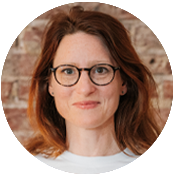 A communications professional and campaigner, Angelika has spent the last 15 years advocating for more ambitious EU and international climate and nature conservation policies, since 2016 as Communications and Campaigns Director at the WWF European Policy Office in Brussels. Prior to this, she worked for the International Union for Conservation of Nature (IUCN), and the Global Wind Energy Council, where she led a campaign on the climate mitigation potential of wind power ahead of the 2015 UN climate negotiations in Copenhagen. She started her career as a journalist reporting on environment and energy policy in Brussels, and holds a Master's degree on European Studies from the London School of Economics (LSE).
A communications professional and campaigner, Angelika has spent the last 15 years advocating for more ambitious EU and international climate and nature conservation policies, since 2016 as Communications and Campaigns Director at the WWF European Policy Office in Brussels. Prior to this, she worked for the International Union for Conservation of Nature (IUCN), and the Global Wind Energy Council, where she led a campaign on the climate mitigation potential of wind power ahead of the 2015 UN climate negotiations in Copenhagen. She started her career as a journalist reporting on environment and energy policy in Brussels, and holds a Master's degree on European Studies from the London School of Economics (LSE).
Sven Egenter – Clean Energy Wire
 Founder and editor in chief of Clean Energy Wire | CLEW. The non-profit energy and climate journalism hub covers the relevant stories of Europe's move to climate neutrality, offers trainings for journalists and runs a network of nearly 500 engaged journalists from 82 countries. As Executive Director, Sven is also in charge of multi-award-winning German language climate communication platform Klimafakten. Before launching CLEW, he covered the German, Swiss and British economies during his 12 years at Reuters. He also taught journalism at Kingston University and worked as a media trainer.
Founder and editor in chief of Clean Energy Wire | CLEW. The non-profit energy and climate journalism hub covers the relevant stories of Europe's move to climate neutrality, offers trainings for journalists and runs a network of nearly 500 engaged journalists from 82 countries. As Executive Director, Sven is also in charge of multi-award-winning German language climate communication platform Klimafakten. Before launching CLEW, he covered the German, Swiss and British economies during his 12 years at Reuters. He also taught journalism at Kingston University and worked as a media trainer.
Emilia Díaz-Struck – Global Investigative Journalism Network
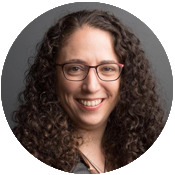 Executive director of the Global Investigative Journalism Network. She was formerly data and research editor and Latin American coordinator at the International Consortium of Investigative Journalists (ICIJ). Emilia took part in more than 20 ICIJ award-winning investigative collaborations, including the Pulitzer-winning Panama Papers. She was previously the investigative reporting coordinator at the Press and Society Institute of Venezuela, and in 2012 was Reporter in Residence at the New England Center for Investigative Reporting at Boston University and CONNECTAS. She pioneered in data journalism and investigative collaborations in her native Venezuela and has been a mentor to Latin American reporters. Emilia has taught at Columbia University in New York, she has been a professor at the Central University of Venezuela and contributor for the Washington Post, magazine Poder y Negocios, Venezuelan media El Universal, El Mundo and Armando.info, which she co-founded.
Executive director of the Global Investigative Journalism Network. She was formerly data and research editor and Latin American coordinator at the International Consortium of Investigative Journalists (ICIJ). Emilia took part in more than 20 ICIJ award-winning investigative collaborations, including the Pulitzer-winning Panama Papers. She was previously the investigative reporting coordinator at the Press and Society Institute of Venezuela, and in 2012 was Reporter in Residence at the New England Center for Investigative Reporting at Boston University and CONNECTAS. She pioneered in data journalism and investigative collaborations in her native Venezuela and has been a mentor to Latin American reporters. Emilia has taught at Columbia University in New York, she has been a professor at the Central University of Venezuela and contributor for the Washington Post, magazine Poder y Negocios, Venezuelan media El Universal, El Mundo and Armando.info, which she co-founded.
Mitali Mukherjee – Reuters Institute for the Study of Journalism
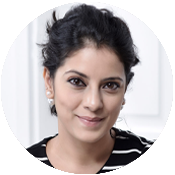 Political economy journalist with more than two decades of experience in TV, print and digital journalism. She was a Chevening fellow for the South Asia Journalism Fellowship 2020, a Raisina Asian Forum for Global Governance Young Fellow 2019 and a 2017 fellow of the Australia India Youth Dialogue. In 2020, she was nominated for the prestigious Red Ink Awards in India for two of her business stories. Mitali has been Consulting Business Editor at The Wire and Mint, Markets Editor at CNBC TV 18 and Prime Time Anchor at TV Today and Doordarshan. She has been a Fellow at The Observer Research Foundation (ORF) where she led Gender Initiatives for the organisation. Mitali has also co-founded two start-ups that focused on civil society and financial literacy. She is a gold medallist in Television Journalism from the Indian Institute of Mass Communication (IIMC) New Delhi, 2001 and a gold medallist, Political Science Hons., Delhi University, 2000. She is also a TEDx speaker.
Political economy journalist with more than two decades of experience in TV, print and digital journalism. She was a Chevening fellow for the South Asia Journalism Fellowship 2020, a Raisina Asian Forum for Global Governance Young Fellow 2019 and a 2017 fellow of the Australia India Youth Dialogue. In 2020, she was nominated for the prestigious Red Ink Awards in India for two of her business stories. Mitali has been Consulting Business Editor at The Wire and Mint, Markets Editor at CNBC TV 18 and Prime Time Anchor at TV Today and Doordarshan. She has been a Fellow at The Observer Research Foundation (ORF) where she led Gender Initiatives for the organisation. Mitali has also co-founded two start-ups that focused on civil society and financial literacy. She is a gold medallist in Television Journalism from the Indian Institute of Mass Communication (IIMC) New Delhi, 2001 and a gold medallist, Political Science Hons., Delhi University, 2000. She is also a TEDx speaker.
Shereen Daver – Programme Director climateXchange
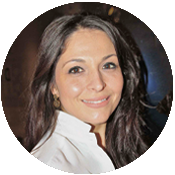 Shereen has over 20 years of experience as a communications specialist and innovation lead from her work with global advertising agencies, F100 Organisations and as a founder. She is an ICF accredited integral coach, regenerative strategist, creative and business developer. She heads up the flagship initiative of Syli CIC as Programme Director for climateXchange, on a mission to reshape the climate journalism media ecosystem. She serves as an advisor for the TG Foundation and provides integral coaching for innovation development and regenerative strategic advice. With listening, understanding and critical thinking at the heart of her approach, Shereen values the power of collaborations and relationships and believes that people with agency can positively affect change at scale.
Shereen has over 20 years of experience as a communications specialist and innovation lead from her work with global advertising agencies, F100 Organisations and as a founder. She is an ICF accredited integral coach, regenerative strategist, creative and business developer. She heads up the flagship initiative of Syli CIC as Programme Director for climateXchange, on a mission to reshape the climate journalism media ecosystem. She serves as an advisor for the TG Foundation and provides integral coaching for innovation development and regenerative strategic advice. With listening, understanding and critical thinking at the heart of her approach, Shereen values the power of collaborations and relationships and believes that people with agency can positively affect change at scale.
Lars Tallert – President of the Sustainable Journalism Partnership
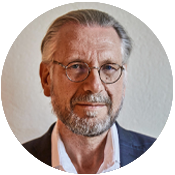 Lars is the founder and President of the Sustainable Journalism Partnership, a newly founded global NGO that explores the relationship between sustainable societies and independent journalism. Lars is also a senior advisor at Fojo/Linnaeus University, Sweden’s Representative to UNESCO/IPDC Intergovernmental Council and Policy Advisor to the Global Forum for Media Development.
Lars is the founder and President of the Sustainable Journalism Partnership, a newly founded global NGO that explores the relationship between sustainable societies and independent journalism. Lars is also a senior advisor at Fojo/Linnaeus University, Sweden’s Representative to UNESCO/IPDC Intergovernmental Council and Policy Advisor to the Global Forum for Media Development.
He is trained in the US, France and Sweden and served for twelve years as a reporter and editor for leading Swedish media. For 15 years he advised governments, media, private companies, the UN and civil society on issues related to communication and journalism. Among the organisations for which he served and cooperated are the Swedish Prime Minister’s Office, the Guardian, Sida, Ericsson, JP/Politiken, OECD/DAC, The Cabinet of Ministers of Ukraine, the Stockholm Culture Centre, UN-Habitat and the Regional Kurdish Government in Iraq. For three years he was stationed in Nicaragua, working as a reporter and communication advisor to the Nicaraguan Centre for Human Rights.
During the last twelve years he has led the development of Fojo/Linnaeus University’s international projects – Sweden’s leading media development organisation – and 2022 he founded the Sustainable Journalism Partnership.
Ivan Couronne – "Future of the Planet" chief editor
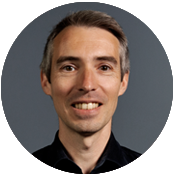 Ivan is the "Future of the Planet" chief editor at Agence France-Presse in Paris. He reports to AFP's Global Editor-in-Chief and oversees climate coverage for AFP's 1,700 journalists worldwide, who produce text, photo, and video news content in six languages.
Ivan is the "Future of the Planet" chief editor at Agence France-Presse in Paris. He reports to AFP's Global Editor-in-Chief and oversees climate coverage for AFP's 1,700 journalists worldwide, who produce text, photo, and video news content in six languages.
Working with AFP's business, environmental and general news reporters, he is in charge of unifying coverage of the causes and impact of climate change, of the energy transition, and of the responses to the climate crisis. Additionally, Ivan coordinates coverage of major environmental events such as COPs and supervises AFP's climate training program for the global newsroom.
Alastair Bealby – Information and communication officer at Unit Communication, DG Climate Action at the European Commission
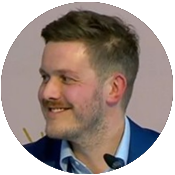 Alastair Bealby has been at the European Commission since 2017, and is currently the speechwriter and press officer in the Climate Action department. He previously advised a variety of clients in the UK, Germany and Belgium on corporate communications, before moving to the Commission and supporting efforts to tackle disinformation.
Alastair Bealby has been at the European Commission since 2017, and is currently the speechwriter and press officer in the Climate Action department. He previously advised a variety of clients in the UK, Germany and Belgium on corporate communications, before moving to the Commission and supporting efforts to tackle disinformation.
Åsa Jamal – Vattenfall
 Senior Vice President and Head of Group Communications at Vattenfall, with an extensive background in communication and media (SVP and Head of Group Communications at Telia Company, SVP and Head of Communication and HR at Bonnier Broadcasting/TV4). Åsa will open the event in Brussels.
Senior Vice President and Head of Group Communications at Vattenfall, with an extensive background in communication and media (SVP and Head of Group Communications at Telia Company, SVP and Head of Communication and HR at Bonnier Broadcasting/TV4). Åsa will open the event in Brussels.
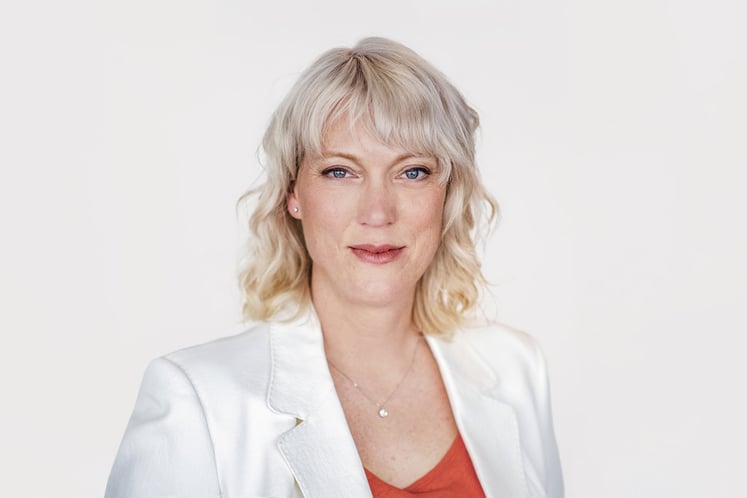
Why is Vattenfall organising this?
Anouk IJfs, Head of Media Relations, explains why an energy company is hosting a conference on climate communication.
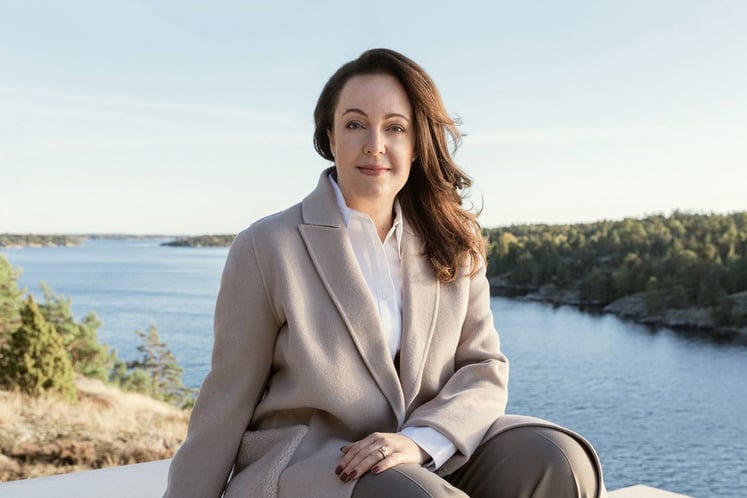
“We need to shift the focus to the possibilities”
Anna Borg, CEO and President of Vattenfall, shares her reflections on how bad news fatigue can be avoided when communicating around climate change.

Event newsletter
Keep up to date with the programme, the speakers and relevant news.
- Edition #6: Let us spread hope (PDF 2 MB)
- Edition #5: Can we be hopeful about climate change? (PDF 685 kB)
- Edition #4: How to successfully reach people about climate change (PDF 420 kB)
- Edition #3: Power of words (PDF 365 kB)
- Edition #2: Eco-anxiety (PDF 470 kB)
- Edition #1: Disinformation (PDF 463 kB)

